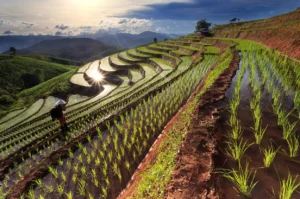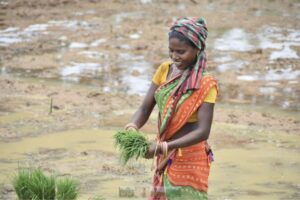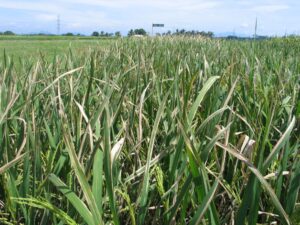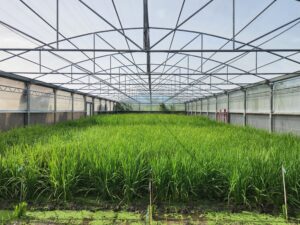The Taiwan government has strengthened its commitment to global food security with its recent annual donation of USD 600,000 to support a collaborative program on rice research with the International Rice Research Institute (IRRI) from 2016 to 2019.
In an official letter addressed to IRRI Director General Robert Zeigler, Minister Bao-ji Chen informed IRRI that the Council of Agriculture (COA) will provide a budget of around USD 500,000 per year until 2019 to fund the rice varietal development program, and the International Cooperation Development Fund (ICDF) will support a customized capacity building program for enhanced extension services and global collaboration with a budget of USD 100,000 a year.
Collaborative activities between Taiwan and IRRI are recent, but the country’s key contribution dates back to the development of IR8, also known as “miracle rice”. Through the agreement signed on 26 January 2015, IRRI formalized the strategic partnership with Taiwan in developing, evaluating, and disseminating new rice varieties.
IRRI Deputy Director General for Communication and Partnerships, Bruce Tolentino, shares the significance of this collaboration. “Taiwan provided one of two parental lines of rice—Dee-geo-woo-gen—that was bred at IRRI to develop the first generation of high-yielding rice varieties, which sparked the first Green Revolution of the 1970s to 1980s,” he said. “Today, again in partnership with IRRI, Taiwan continues to help push the boundaries of science to ensure not only abundant, but also high-quality rice to ensure global food security and human health,” Dr. Tolentino added.
Other past collaborative activities have proven mutually beneficial among IRRI, the National Taiwan University (NTU), and the Taiwan Agricultural Research Institute, Council of Agriculture of the Executive Yuan. These led to the promotion of research, training, integrated pest management, and rice germplasm improvement and conservation, among others. In October 2008, IRRI and NTU signed an agreement that established a partnership in rice research to boost global rice production.
A recent research collaboration between Taiwan and IRRI centers on the need to jointly tackle the problems brought about by extreme climates. Plant pathologist and project coordinator Hei Leung expressed thanks for the financial support for this research endeavor. “IRRI is most grateful to the Taiwanese government for providing a new grant to support the discovery of new rice genes and traits that can tolerate the negative effects of climate change and to strengthen the collaboration between Taiwan institutions and IRRI. This will allow IRRI to fully explore the genetic treasures hidden in the International Rice Genebank, a legacy of world-renowned Taiwanese scientist, T.T. Chang, who pioneered its establishment in the 1960s,” he stated.
COA is the authority on agriculture, forestry, fishery, animal husbandry, and food affairs in Taiwan. Representatives from the Council will be coming to IRRI to finalize the project workplan on 27-29 October 2015.
Learn more about IRRI (www.irri.org) or follow us on the social media and networks (all links down the right column).










